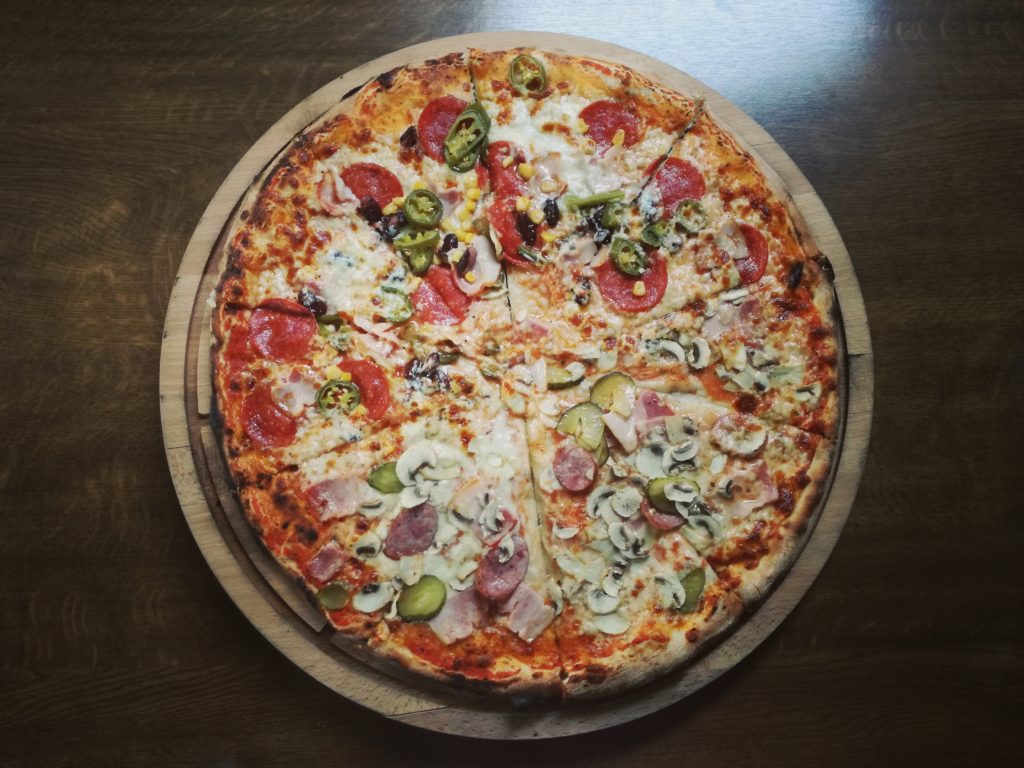I wish the term “falling off the wagon” didn’t exist as a seemingly universal way to express that we’ve messed up yet again with our food choices. It’s a pretty painful and uncomfortable image that comes to mind, because come on, NO ONE wants to fall off of a wagon.
My mom has had the distinct pleasure (or pain?) of almost cascading out of a buckboard wagon at night in the Arizona desert when the horses got spooked by god-knows-what out in that inky, hot sandscape.
Ok, so “falling off the wagon” should exist in our syntax in the literal sense.
But it has no place when it comes to talking about our food and how we’ve inevitably screwed it up for the twentieth time this year.
Whenever my patients tell me they’ve fallen off, aka, they’ve failed, I rejoice a bit.
It confuses people at first when I smile at them when they’re feeling terrible about themselves and like they’ve let me down.
But then I explain myself and they think I’m a little less crazy. Especially when I tell them they haven’t failed at all.
Here’s why I think it’s pretty fantastic to “mess up” (you really haven’t messed up at all!) on your diet:
#1 Reassessment Time
“Falling off the wagon” creates time and space for you to step back and reassess if this latest nutritional bent is actually good for you.
Now, ideally, we’d all take this step before the point of no return, but the crash and burn certainly gets our attention.
But instead of dousing the flames that are now wicking their way along the tall grasses (you’ve apparently crashed in an idyllic meadow in this scenario) and reflecting back on what we could have done differently, we tend to stay put and watch the fire build to greater and greater heights us.
We're paralyzed. By fear, shame, overwhelm, grief, disappointment, you name it. This chaotic storm of emotions builds so quickly that we're easily overcome, feeling totally out of control with food and ourselves.
Except that we aren't, despite how we might feel.
Everyone who's been on a diet knows this feeling. And we all talk to each other about our challenges to be healthy.
We try to laugh off our "failure" and bond with others who have also struggled against the impossibility of "staying on track."
Then in a few months, we hop back on the diet train, hoping there will be a different outcome despite having changed nothing about our own mindset around how we think and feel about our food.
This is pretty much the definition of insanity: doing the same thing over and over and expecting a different result. Yes, the variable changed slightly (the diet), but not enough to create a different result because YOU are the key here, not the food plan.
I spent many years in this mental trap. It’s so much easier to look for solutions outside ourselves, but they ultimately always lead to the same place: nowhere.
We have to turn the lens inward to create real shifts. It's not an easy task, and in this fiery meadow scenario, it's also hot from the flames and itchy from the grass, but this is the real stuff. The authentic you that’s going up in flames in this meadow.
So ask yourself: what parts of you are aching and singed?
Your ego? Your pride? Your sense of accomplishment? Your vulnerability? Your inner critic?
Once you recognize the mental and emotional areas that are getting scorched, you’ll naturally want to go find some cooling, refreshing water to soothe them and stop the self-injury.
This recognition marks the beginning of your reassessment.
You have to unearth these triggers and bring them into your consciousness in order to examine and heal them. They’re not good or bad, they’re simply a part of you.
And learning to cope with them is a necessary part of moving past “falling off the wagon.”
You might struggle in the future with nutrition, as we all tend to, but you won’t look at these situations as a failure anymore. Rather, they are an opportunity to analyze what you’ve just put yourself through and if it’s a sustainable fit for you and your health.
So what does this reassessment look like? What questions do you ask yourself?
The first step is to reflect on your experiences mentally, emotionally, and physically during the time you were on this diet. Make a list of positive and negative experiences.
Were you hungry all the time? Was it the bad I’ll-strangle-someone-for-a-cucumber-right-now hunger? Or manageable and ok?
How were your moods? Did you feel good for a few days then drop like a rock into depression?
What happened for your digestion? Did your gas and bloating go away?
How about headaches? Joint pain? Stress levels?
Take a minute and really dredge through your experience.
A special note: if you’re actively trying to reduce inflammation in your diet, oftentimes uncomfortable symptoms will appear for the first few days to a week while your body adjusts and clears out all the crap. So be sure to reflect on this as well, if things got worse, then felt better, or if they felt consistently awful.
Once you’ve collected your data, it’s time to move on to Final Jeopardy. Don’t worry, you don’t have to answer in the form of a question unless you want to.
The Final Jeopardy question to ask yourself: Was this diet beneficial for me?
And allow me to clarify, we’re talking way beyond weight loss here.
Look back at your compendium of experiences and take into account the mental, emotional, and physical ups and downs.
What did you learn from your time with this diet? Did it teach you things about yourself (hint: they always do) and if so, what?
This is the crucial step right here. When we understand what we’ve actually taken away from our experience, we can make an informed decision about what we want for ourselves in the future.
Suddenly the meadow becomes less hot, the fire gets put out, and we start to come out of the panic and find ourselves again.
#2 Realization Time
Reassessment is an active, self-directed way of achieving the shift we need for our inner critic to step out of the judgment-shame-paralyzed-zone and into the self-improvement, self-love zone.
Realization is the next step. It's about recognizing a larger pattern that runs throughout all of our experiences around food so we can develop a supportive, nourishing, and satisfying relationship with it, rather than one based on guilt, fear, and self-blame.
The pattern I'm talking about is one that we're often all too familiar with: we get on the diet wagon, hold on for dear life, fall off without warning, pick ourselves up eventually, feel lost and disappointed, then repeat the same dance weeks or months later.
It’s a vicious, self-defeating cycle and it’s time to stop it.
This common dieting experience has us living in the extremes. We're swinging wildly from on-a-diet to off-a-diet, never stopping in the middle, a place of balance, peace, and moderation.
But how do we even find this elusive and seemingly mythical moderation? And isn't it different for everyone?
Yes, it is. Not only that, it's also a moving target. What's moderate for you now might not be moderate for you in a few months.
And that's great! If your needs are changing it means that you're growing, listening, and adapting. Yay!
Your diet isn't be a static thing.
It evolves with you as you discover more about which foods bring you satisfaction and make you feel great, and which don't.
Health lies in finding your own personal moderation.
Each time we “fall of the wagon”, it allows us the choice to swing back just a little less far toward the next diet craze.
To chose a more moderate response and realize hiding in the extremes is a reaction to feeling ashamed for failing.
I see this learning process happen the most rapidly in my patients once they choose to pursue their health by trusting their own bodies rather than striving for weight loss, better skin, or any number of things that diets promise nowadays.
They choose to listen to themselves instead of nutrition trends and diet gurus.
They choose to seek out foods that offer them pleasure and joy when they eat them, not the right number of calories or grams of fat.
It takes a lot to let go of the deep programming of diet and wellness culture and see that food can offer us much more than fuel and a way to lose weight.
It can feel like mental gymnastics to realize that we don't have to be miserable around our food. And that we're worth more than a number on a scale or pant size.
These deep realizations that disconnect our self-worth from what we eat help us start to see that we haven't failed when we fall off a diet.
We have been given an opportunity to see things through a different lens. To reassess our approach, recognize our values and needs around food, and realize that they probabaly don't line up with the party line of the diet industry.
The ultimate decision maker when it comes to food is YOU.
If you feel good and satisfied with the food you're eating, great, keep at it! If you feel worse over time or like something is missing, it's time to switch it up!
Just like moderation, success and failure are malleable terms and depend deeply on context.
To me, failure just isn't possible around food. It's not something we can decide to omit from our lives because we are biologically dependent on it.
Each time we interact with food, we have an opportunity to learn and integrate that experience into our future feelings and actions.
This is by no means an easy task, but know that curiosity and honest questions will always lead you in the right direction.
Here's to falling off the wagon and never getting back on!





